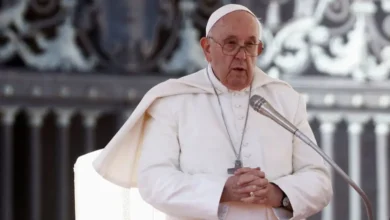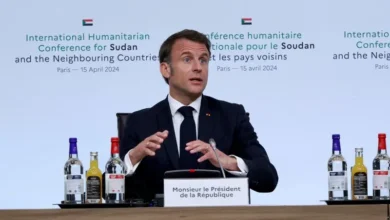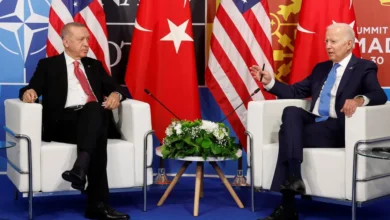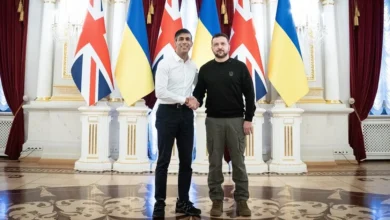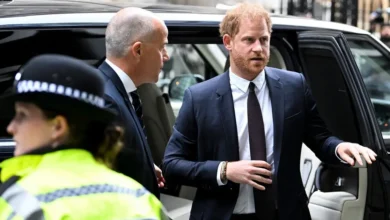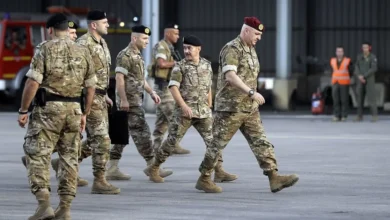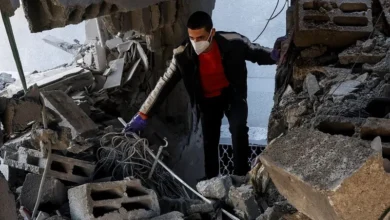Sultan al-Jaber highlights oil industry’s climate goals, accountability in question
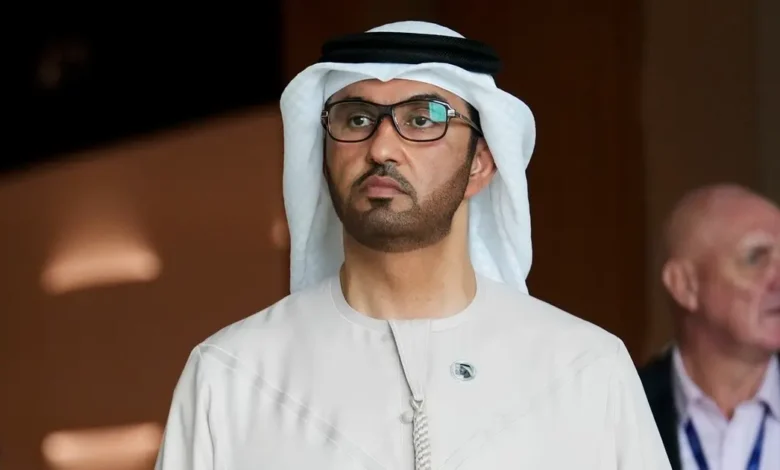
The COP28 President-designate highlighted the significance of emissions targets set by oil and gas companies during a press meeting on Wednesday, but declined to provide steps to ensure accountability.
In the run up to the UN-backed climate conference, Sultan al-Jaber, who is also the head of the UAE oil and gas giant ADNOC, said that “for the first time ever, a significant number of oil and gas companies” are aligned around net zero by 2050, and working to zero out methane emissions and end constant flaring by 2030.
However, when questioned about accountability standards to ensure compliancy to targets of these large-scale polluters, al-Jaber struck a hopeful tone but declined to provide further details.
“I’m not at liberty at this point to answer that. Wait a couple of more days and you will see the answer,” he said in response to one of only two questions asked during the press conference attended by select media personnel.
The long-awaited climate conference, which is expected to provide what the UN calls a “reality check” in terms of a Global Stocktake, will kick off on Thursday and see the participation of world leaders and youth activists alike.
The 28th edition of the conference, held in the UAE’s financial capital Dubai, joins 17 other fossil fuel producing nations to have hosted the UN-backed event. Governments are expected to hasten action to limit global warming, especially since reports are showing countries are off track to meet any prior promise in their paths to limit the rise in global temperatures to 1.5 degrees Celsius.
The climate conference, held at Dubai’s Expo City, will run from November 30 to December 12. World leaders including Israeli President Isaac Herzog, his Palestinian counterpart Mahmoud Abbas, Ukrainian President Volodymyr Zelenskyy, British Prime Minister Rishi Sunak, Turkey’s President Recep Tayyip Erdogan, Jordan’s King Abdullah II, the Emir of Qatar Sheikh Tamim al-Thani and Brazilian President Lula da Silva are expected to speak at the event.
In his tour of many nations ahead of COP28, al-Jaber has reiterated the need to transition rather than “unplug the energy system of today before we build the new system of tomorrow,” a comment he made during a keynote in the MENA Climate Week held in Riyadh on October 8.
“Oil and gas only represent 29 percent of our value stream. That is phenomenal,” al-Jaber said during the keynote at the Wednesday gathering which came on the heels of a BBC report based on leaked documents that the UAE planned to strike oil and gas deals leveraging its position as the host of COP28.
Al-Jaber vehemently denied this allegation in response to a query by the media at the press conference.
“These allegations are false. Not true. Incorrect, and not accurate. It is an attempt to undermine the work of the COP28 presidency,” al-Jaber said.
“Do you think the UAE, or myself, will need the COP or the COP presidency to go and establish business deals or commercial relationships?” he asked, iterating that the 50-year-old country was built “around its ability to build bridges and create relationships and partnerships.”
“I promise you, never ever did I see these talking points that they refer (to), or that I ever even used such talking points in my discussions,” the COP28 president-designate said.
Various activists, elected leaders and campaigns have questioned the effectiveness and ethical implications of an oil executive at the helm of a global climate conference. Al-Jaber’s stance on including the oil and gas industry has divided opinion.
Some eco-figures like US climate envoy John Kerry have backed al-Jaber’s appointment saying that the Emirati executive is in a unique position to lead climate talks and inspire change within some of the biggest polluters in the oil and gas industry. Al-Jaber’s decades-long credentials as the chairman of the UAE-based clean energy company Masdar and also a climate envoy reinforces his position at the climate conference.
Others share a different perspective, pointing at the UAE’s plans to increase oil production in the next half-decade and the potential conflict of interest that may arise in the Emirati politician’s role as the head of ADNOC.

